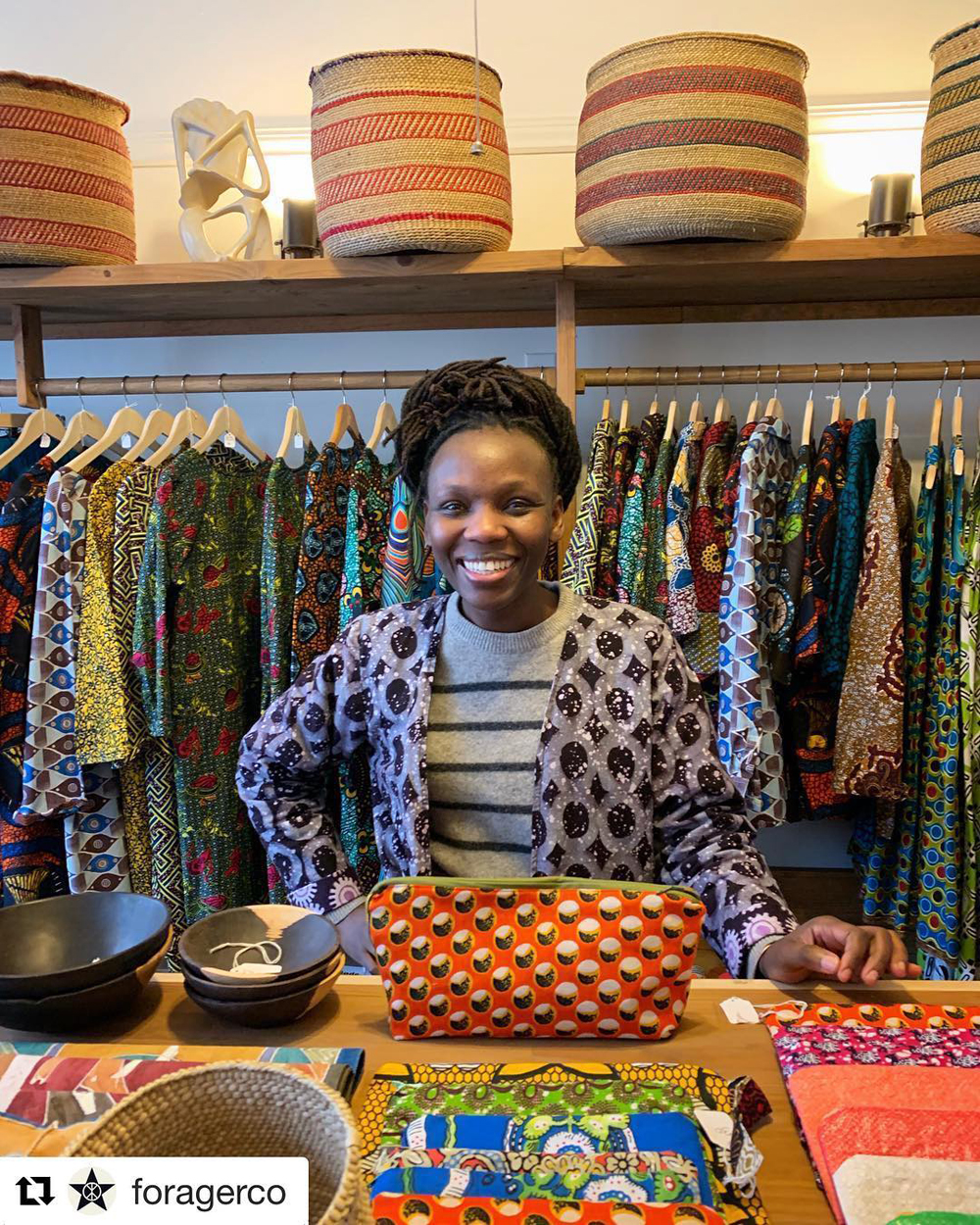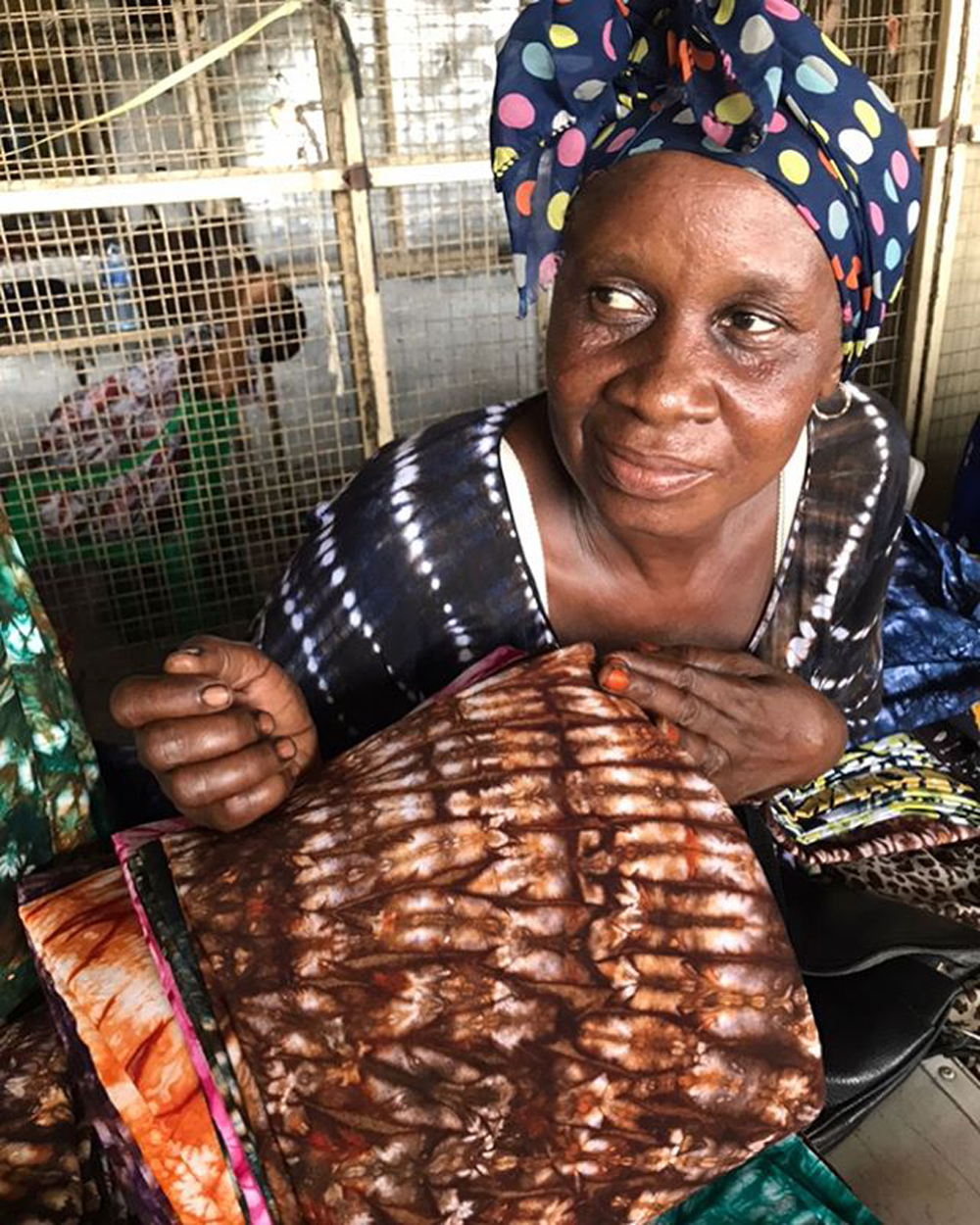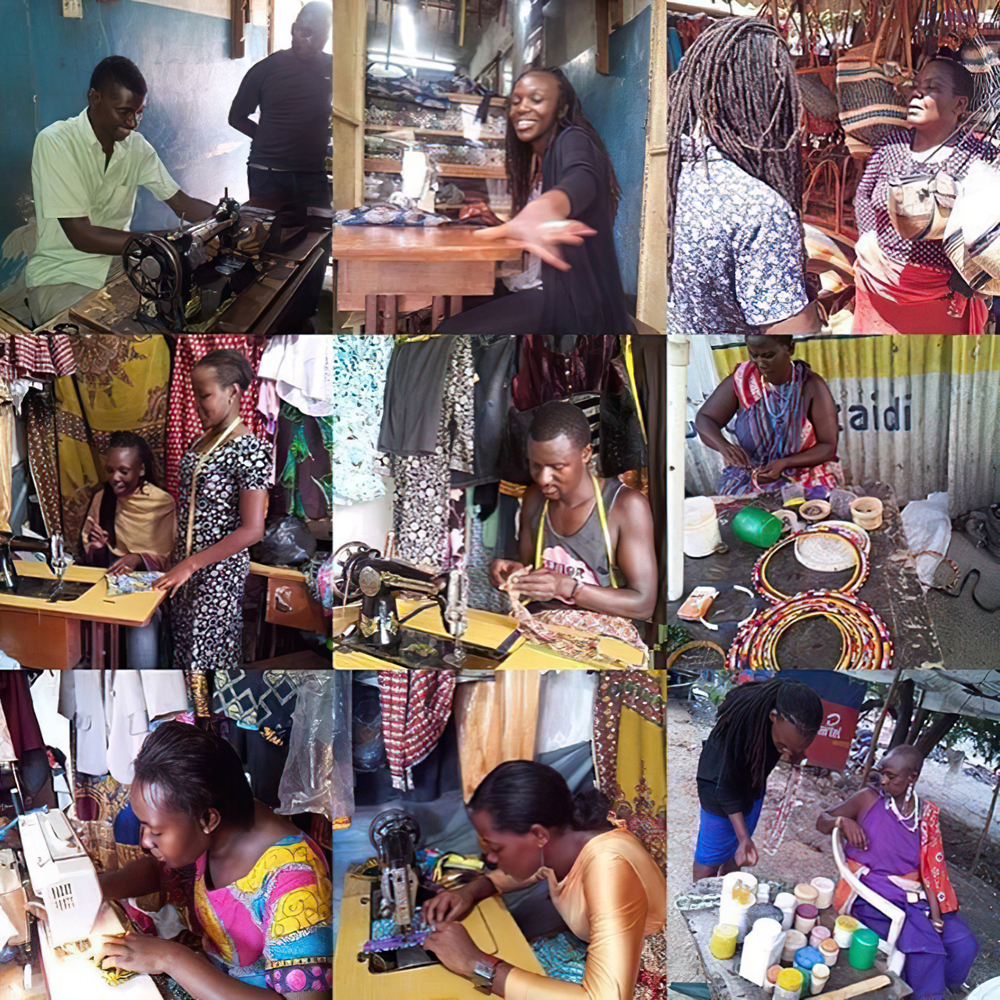Fahari Bazaar Brings Tanzanian Textiles to the Hudson Valley
By Staff | Fall 2020 | Makers | The Source
Hungering for travel, or at least a touch of the exotic? You may not be able to hop on a plane to Dar es Salaam right now, but thanks to Fahari Wambura, an enterprising importer in Chatham, we in the Hudson Valley can immerse ourselves in the look and feel of fine things from Tanzania, made by some of the very same people you might meet if you could get to the Kitumbini fabric market—that is, if only you had an insider’s knowledge of how to find them once you got there.
Wambura developed that knowledge during her time as a writer and editor for Tanzania’s Daily News. “I wrote about a lot of marginalized people, so I was able to build on those relationships,” she says. “One of the wonderful things about doing what I do now is how those relationships have grown. We know each other’s families, we hang out.”

The tangible fruits of Wambura’s connections can be found at the boutique Fahari Bazaar in Chatham. For the home, there are fine Kanga and Kitenge prints made in Tanzanian factories and purchased in small batches from the women entrepreneurs of the Kitumbini market; hand-printed and -dyed Batiki; handwoven Iringa basket; hand-sewn cushion covers from the Sasik Women’s Collective in Zanzibar; and vintage rugs sourced at the markets of Marrakech—along with a full line of vibrant, handmade women’s clothing and bags. Wambura emigrated to Manhattan in 2011 with her husband and small child, and a mind filled with ideas of American life gleaned from the movies; then, she says, she “spent the next three years just trying to figure out how to start over. I didn’t know what to do or where to start. I was pregnant with our second child. It was crazy difficult for a while there.”
Heading upstate to Columbia County, first for camping trips and then as a permanent move in 2014, Wambura recalls, felt like a return to sanity. “A smaller town, trees, farmers’ markets, animals—it felt a lot more familiar,” she says. “I started to feel like I could find a direction.”
During her first autumn in Chatham, her husband and mother-in-law each gave her a sewing machine. “I took it as a sign,” she says. “I kept the one from my mother-in-law and, finally, [the following] January, I watched a video of how to make a tote bag and figured out how to use it.” The tote bags were soon taking over her bedroom; thankfully, they turned out to be very popular at the Hawthorne Valley Farm Store, where she tested their sale, and the flea markets and craft shows she began attending. 
The next year, she made a buying trip home and returned with the beginnings of Fahari Bazaar firmly in hand. The shop opened in May 2016 and was an immediate hit. “It’s been great,” she says. “I started without high expectations, grand ideas or a lot of capital, just a sewing machine and fabric. I just wanted to carry out a dream I had had for a long time, just follow where it was taking me, and every step is filled with gratitude.”
Handpainted Tribal Textiles cushion covers (measuring 18 by 18 inches) are $55. Iringa baskets, woven of sustainably harvested grasses and great for laundry, toys, or storage, start at $80. And you definitely need a pair or two of Kitenge fabric Lazy Pants ($65).
